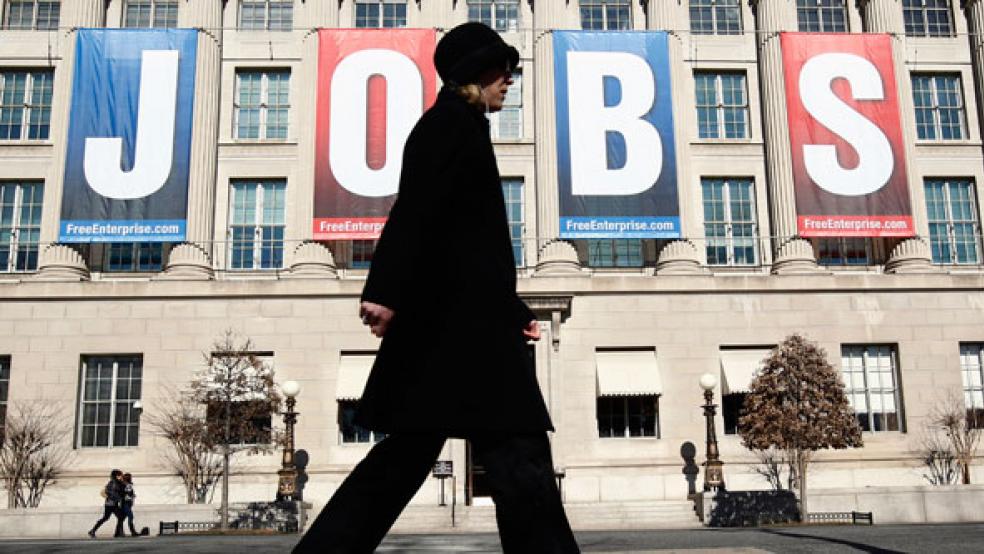The House of Representatives is out of session until February 26. The Senate leaves tomorrow, not to return until February 25. Between now and then, more than 100,000 Americans will join the more than 1.7 million long-term jobless who have exhausted unemployment benefits that, only two months ago, would have continued for as much as a year.
When Congress recessed at the end of 2013, Senate Majority Leader Harry Reid said that on their return, renewing an extension of federal unemployment insurance benefits, which expired on December 28, would be the first order of business when the Senate returned.
Related: Do Businesses Benefit from Unemployment?
After several failed attempts to pass an extension, each of which was filibustered by Senate Republicans, Reid on Wednesday sent out a message to his Twitter followers saying that the Senate would “revisit extension of UI” when it returns.
“It’s devastating and it’s really disappointing that the Senate didn’t figure out a way to get it done,” said Maurice Emsellem, a program director with the National Employment Law Project. “They repealed the military retiree cost-of-living cut, they increased the debt ceiling. There were some opportunities there, and it’s very disappointing that they’re leaving town again and they’re off for another week.”
Federal unemployment insurance benefits supplement state benefits, which generally expire after about six months. They have customarily been extended during times of widespread unemployment. At the peak of the Great Recession, for example, the federal benefit had expanded unemployment insurance to 99 weeks. That was later cut back to 73 weeks, but that extension expired completely in December.
The fact that Congress allowed the extension to expire, despite the fact that the percentage of long-term unemployed sits at about 2.5 percent of the workforce, puzzles many economists.
Related: Weak jobs Report Produces More Questions than Answers
“We’ve never cut off emergency benefits when the long-term unemployment rate is this high,” said Gary Burtless, an economist with the Brookings Institution.
Extending benefits would cost about $6 billion for three months, and probably about $20 billion over a full year. (The continuing improvement in the unemployment rate would likely reduce the number of recipients over the course of 2014, meaning that further quarterly extensions would be less expensive.)
Burtless said most economists believe that an extension of benefits would have a stimulative effect on the economy, because recipients are likely to spend the money they receive almost immediately. That effect, though, would be reduced under the proposal Democrats in the Senate are pushing, he said, because they agreed to Republican demands that the costs be offset with other spending cuts.
However, many of the Congressional Republicans blocking a benefits extension disagree with some economists’ on the effect of extended unemployment insurance benefits, a position enthusiastically supported by conservative think tanks.
Related: Yellen – Labor Market Recovery “Far from Complete”
James Sherk, labor policy analyst with the right-wing Heritage Foundation, claims that the stimulative effect of unemployment insurance only turns up in the analyses of non-partisan organizations like the Congressional Budget Office because it is baked in to their economic models.
“It would be virtually impossible for CBO to run their model and come to any other conclusion,” he said in an interview. “It would be great if you could stimulate the economy that way. It would be wonderful if it were that easy.”
Sherk said that while the human cost of widespread joblessness is undeniable, long-term unemployment benefits actually make things worse. “There’s a humanitarian case to be made for it, but I think a year and a half is too long. I think somewhere around nine months worth of benefits would be more appropriate. “
Related: The Hidden Reason for January’s Dismal Jobs Report
By inducing the unemployed to hold out for jobs that offer salaries similar to those from jobs they had in the past, he said, unemployment insurance encourages “very counterproductive job search decisions.” Further, he argued, extended unemployment benefits in general encourage workers to hold out for higher wages, which decreases employers’ incentive to create new jobs.
At least as far as the stimulative impact of unemployment insurance spending goes, Sherk’s analysis is clearly at odds with most economists, but its appeal among congressional Republicans remains strong enough to have kept an extension of unemployment benefits from being enacted for two months, and for an undetermined time in the future.
Top Reads from The Fiscal Times:




